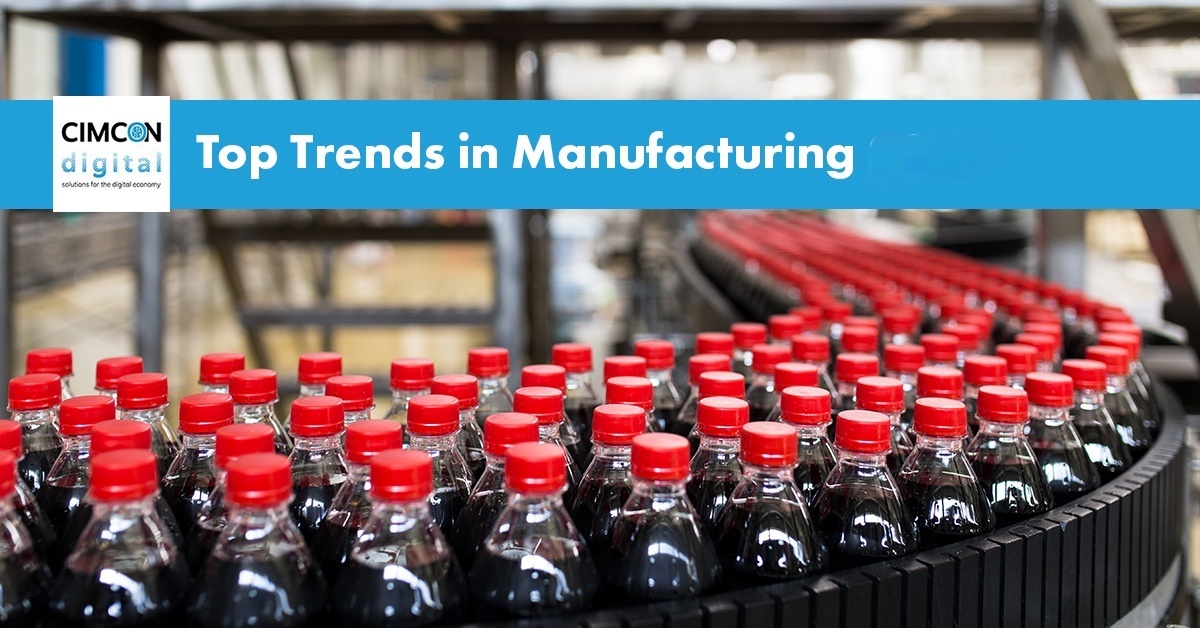The world of Manufacturing is on the precipice of extraordinary change. A report by Gartner says, “36% of manufacturing companies face disruptions and fall behind on operating cost competitiveness”. The dynamics of modern innovation and technology edging their way into the very essence of how humans visualise manufacturing is staggering. The advancement of manufacturing explores the various avenues of varied trends in the sector. This article sheds light on the various trends that the manufacturing industry is adapting now and in the near future.
Focus on sustainability and carbon neutrality: The manufacturing industry is driving its focus toward sustainability and carbon neutrality. Neutralising the greenhouse emission is the need of the hour. Ensuring that the manufacturing process is energy efficient is a crucial change that all industries focus on. Energy efficiency improvements will, without question, play a critical role in putting the globe on a net-zero path. Heating and cooling, in particular, require quick attention because they account for a significant share of energy consumption in processing plants, sometimes between 50 and 90 per cent.
Manufacturers can capture heat from refrigerators and enhance the temperature to produce heat suited for various manufacturing uses using cutting-edge heat pump technology. Highly efficient heat pumps, in our experience, can significantly cut energy consumption and CO2 emissions for manufacturers.
They are forging closer customer relationships to optimise the manufacturing process. Each client is distinct. The best opportunity for achieving a personalised solution that is both economically and environmentally superior is to form trusted partnerships. The best setup necessitates solid coordination from the start. Plants tend to be planned and built piecemeal without an integrated approach, with each process enhanced in isolation, if at all.
Data-driven maintenance: This is the key to ensuring manufacturing processes get trendy. Every company has a maintenance strategy to deal with part failure since machines on shop floors must be serviced continually to ensure they perform correctly. In many facilities, a reactive or “run-to-failure” maintenance strategy is still used to keep machinery working for more extended periods of time. According to statistics, this method reduces productivity by about 20%, resulting in unplanned downtime if machines break down during a manufacturing cycle. A data-driven technique takes a proactive approach to machine maintenance by tracking every performance statistic that describes the machine’s and its components’ health and also helps in predictive and prescriptive maintenance. Unplanned downtimes will be eliminated, resulting in increased production efficiency. The maintenance requires a three-step process which enables the manufacturing. These three steps that the manufacturing processes are adopting are:
- Data collection and monitoring: The capacity to collect data in real-time is the foundation for using your data. MachineMetrics is a plug-and-play solution that contains data from discrete manufacturing equipment and IoT devices, such as operational speed, equipment temperature, and energy consumption rate.
- Data categorisation and visualisation: To gain insights from collected data, MachineMetrics uses the AWS cloud to provide out-of-the-box applications that simplify the visualisation and reporting of shop floor data through optimised workflows. Business intelligence and action: Reports and procedures are available to help decision-making and strategy development. After collecting and analysing machine data, planning and executing practical methods to improve production efficiency becomes viable.
Meeting increased demand with reduced labour: The demand for goods and services has been increasing at an unprecedented rate. The manufacturing processes are gearing up to enable automation to reduce labour and save costs. Enabling digital transformation to automate the supply chain process in manufacturing will be highly useful in meeting the demands and reducing labour costs. Furthermore, companies are actively trying to reduce machine downtime, increasing efficiency and saving manufacturing costs.
Supply Chain reassessment and Agility: As manufacturing becomes more immersed in technology, the skill gap in the industry becomes a cause of concern. Owing to digital transformation, companies rely on technology and human labour. As mentioned above, the workforce available for companies has already reduced; added to this very problem is the pool of skilled workers. More and more organisations are hence focusing on currently is continuously upskilling and training their existing employees. Change is an inevitable aspect of the world of manufacturing and supply chains. Just like the supply chain, employee training and acquisition need to be agile.
Need for digital transformation: The need of the hour in manufacturing processes is not the digitisation of a few functions and processes. Rather an end to end overhaul is needed at every step and every touchpoint in the entire manufacturing and organization functioning. Data is knowledge, and knowledge is power. Organizations can employ prescriptive maintenance and other pre-emptive measures to make their production process efficient with big data. Unplanned downtime can be tackled through digital transformation, and hence exponential losses can be avoided well in advance. Well, not just avoiding losses, digital transformation has become the key to making profits by enhancing margins. After a dip in 2020 and 2021, more and more organizations are keen on improving their profitability by being as efficient as possible and digital transformation is what they are turning to.
Upskilling workforces: It’s no surprise that most of our industry and consumer serving sectors rely heavily on the manufacturing industry. The pandemic of 2020 sent shockwaves across the globe that affected manufacturing and the supply chain in a significant manner. Due to major technical and process disruptions, the industry could move back to normal operations. But the lingering effects of the pandemic have focused on continuous assessment of manufacturing processes. Businesses want to be agile and on their toes all the time to face any challenges that come their way.
Companies are designing processes and business models that keep agility and adaptability at the focus. Data can help organizations navigate uncertain times, and hence the importance of data in manufacturing is at an all-time high.


